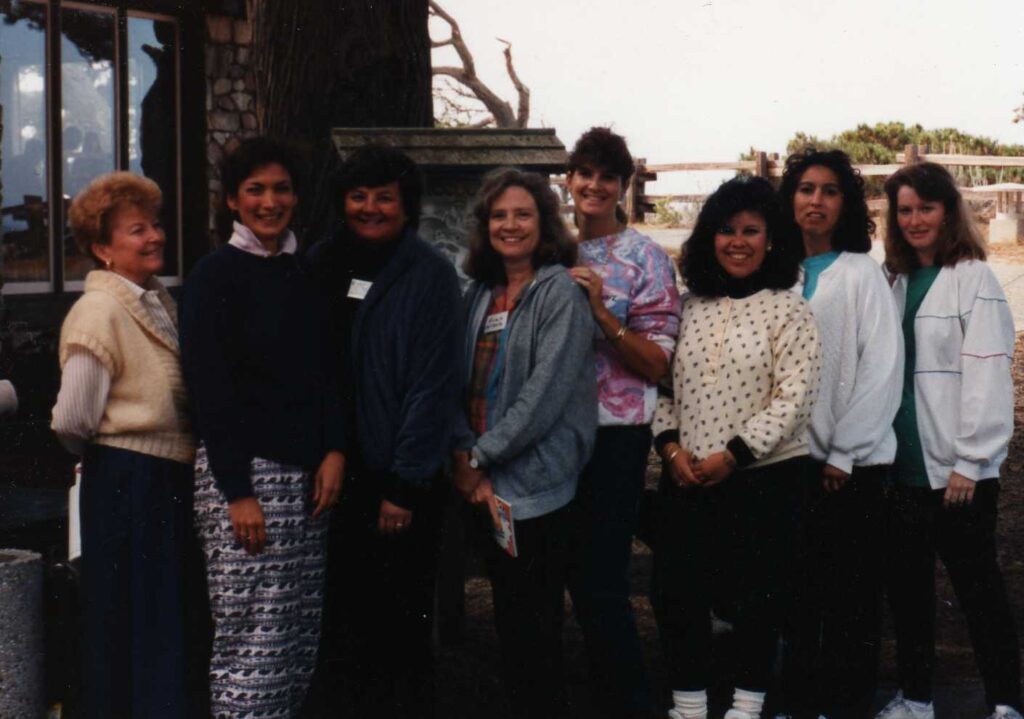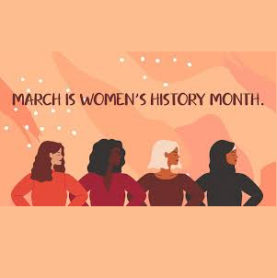March is Women’s History Month, a time to recognize and celebrate the achievements and contributions of women across our nation’s history.
CCRC was founded in 1976 by a group of women. Today, three of the agency’s six executive team members are women and 15 members of the leadership team are women. Of the more than 1,000 people employed by CCRC in the 2022 fiscal year, about 88% identified as women.

The first Women’s History Day took place on February 28, 1909 in New York City to commemorate the one-year anniversary of the garment workers’ strike through Lower Manhattan. Immigrant women who worked in garment factories protested their working conditions, which consisted of 12-hour workdays and a wage up to $15 a week (about $440/week in today’s dollars).
Women’s History Day evolved into a local week-long celebration in Santa Rosa, California in 1978. Organizers from the Education Task Force of the Sonoma County (California) Commission on the Status of Women selected the week of March 8th to align with International Women’s Day. The movement started spreading across the country, ultimately leading to the formalized declaration of National Women’s History Week in 1980 by President Jimmy Carter.
“From the first settlers who came to our shores, from the first American Indian families who befriended them, men and women have worked together to build this nation. Too often the women were unsung and sometimes their contributions went unnoticed. But the achievements, leadership, courage, strength, and love of the women who built America was as vital as that of the men whose names we know so well.”
In 1987, Congress passed a law designating March “Women’s History Month.” Presidents have issued annual proclamations for “Women’s History Month” since 1995.
The National Women’s History Alliance selects and publishes annual themes. The theme for 2023 is Celebrating Women Who Tell Our Stories to acknowledge and honor “women in every community who have devoted their lives and talents to producing art and news, pursuing truth and reflecting society decade after decade.”
Notable women in American history include:
- Jane Austen, author (1775 – 1817)
- Sojourner Truth, abolitionist and activist (1797 – 1883)
- Marie Curie, chemist (1867 – 1934)
- Lyda Conley, first Native American woman plaintiff to file in SUPCO (1869-1946)
- Georgia O’Keeffe, artist (1887- 1986)
- Amelia Earhart, pilot (1897 – 1939)
- Rosa Parks, activist (1913 – 2005)
- Patsy Mink, first Asian-American woman to be elected to the US Congress (1930 – 2002)
- Anne Frank, author (1929 – 1945)
- Maya Angelou, author (1928 – 2014)
- Dolores Huerta, activist (1930 –
- Sonia Sotomayor, Supreme Court Justice (1954 – present)
- Michelle Obama, first lady (1964 – present)
- Kamala Harris, vice president (1964 – present)
- Oprah Winfrey, talk show host (1954 – present)
- Malala Yousafzai, activist (1997 – present)
- Amanda Gorman, poet (1998 – present)


